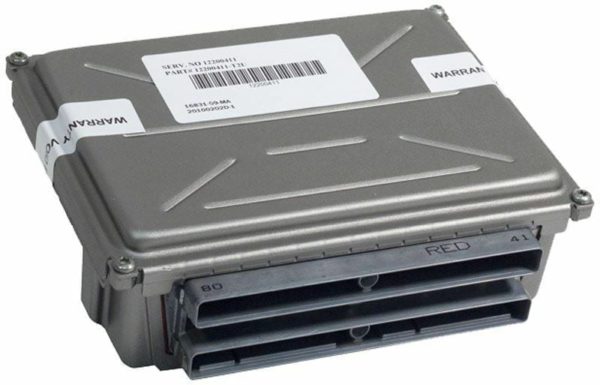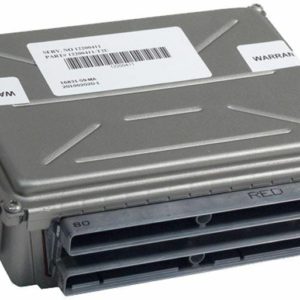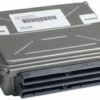Is Your 2001-2002 Yukon XL 2500 Giving You Headaches?
If you’re dealing with baffling electrical gremlins, a no-start condition that comes and goes, or a Check Engine Light that won’t stay off, the problem might be deeper than a simple sensor. As the central command center for your engine and transmission, the Powertrain Control Module (PCM) is the brain of your truck. When it starts to fail, it can cause a cascade of confusing and frustrating symptoms that can be a nightmare to diagnose.
Over my 20+ years in the shop, I’ve seen hundreds of these GMT800 platform trucks and vans come in with issues that owners have spent weeks and hundreds of dollars trying to fix by replacing sensors. The real culprit, time and again, is a failing PCM. The constant heat cycles under the hood, vibrations, and two decades of service can cause internal circuits and processors to break down, leading to intermittent and unpredictable behavior.
Common Symptoms of a Failing GM PCM
A faulty PCM doesn’t always fail completely. Often, it begins to fail intermittently, making diagnosis tricky. If your Yukon XL 2500 is experiencing any of the following, it’s time to suspect the module:
- ✔ No-Start or Intermittent Starting: The engine cranks but won’t fire up, or it only starts when it feels like it. This is often due to the PCM failing to command the fuel pump or ignition coils.
- ✔ Erratic Shifting or Transmission Issues: Your transmission might slam into gear, refuse to shift, or feel like it’s slipping. The PCM controls shift points and solenoid operation, so a fault here directly impacts drivability.
- ✔ Multiple Unrelated DTCs: Is your scan tool lighting up with codes for various sensors, communication errors (U-codes), or injector circuits? A failing PCM can send out faulty signals, making good sensors appear bad.
- ✔ Poor Engine Performance and Fuel Economy: A compromised module can’t properly manage fuel trim, ignition timing, and emissions controls, leading to a noticeable drop in power and more trips to the gas station.
- ✔ Stalling for No Reason: The engine may suddenly die while driving or when coming to a stop, another classic sign of an internal PCM fault.
Expert Pro Tip: Check Your Grounds First!
Before you condemn your PCM, do what we do in the shop: check the basics. On these GM trucks, there’s a critical ground strap from the firewall to the back of the cylinder head and several ground points on the engine block and frame. A corroded or loose ground can cause voltage drops that mimic PCM failure. I’ve saved customers hundreds by simply cleaning a ground connection. A 10-minute check can save you a lot of hassle. If grounds and power supplies are solid and the symptoms persist, the PCM is your most likely culprit.
The Guaranteed, Hassle-Free Solution
Don’t roll the dice on a junkyard module that could have the same issues or require an expensive trip to the dealership for programming. This PCM is the definitive solution for your 2001-2002 Yukon XL 2500. We take all the guesswork and extra cost out of the repair.
Here’s how it works:
- You purchase this module.
- You provide us with your vehicle’s 17-digit VIN during checkout or by message.
- Our technicians program the module with the latest GM-certified software specific to your exact vehicle configuration.
- We ship you a plug-and-play module, ready for installation.
This module is a direct replacement for part numbers 12576160, 12200411, 12201281, and 52369718. The unit is typically located on the driver’s side of the engine bay, under the battery tray. Once installed, you’ll need to perform a security relearn procedure (easily done in your driveway) and possibly a CASE/Crankshaft Variation Relearn with a capable scan tool to ensure optimal performance and prevent a P1336 code. This process restores communication and gets your truck running right again.


